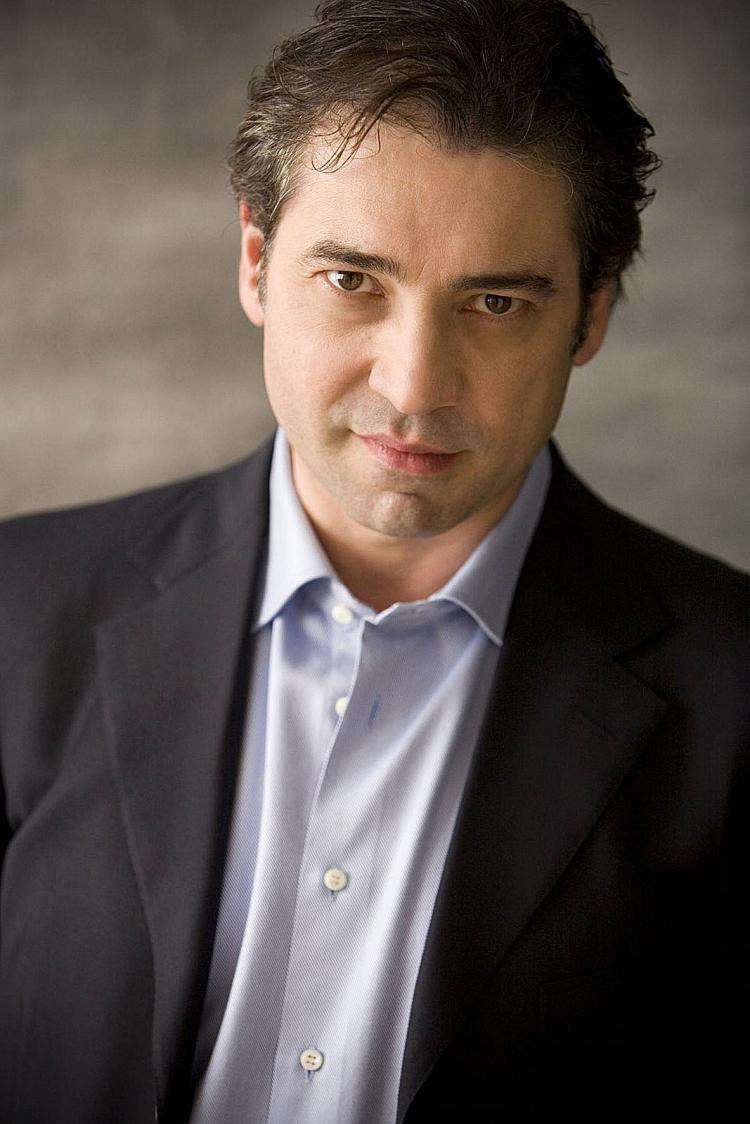|
Back
Lusty Luisotti Enlivens Miami Miami
Knight Concert Hall
03/02/2012 - & March 3, 2012
Giuseppe Verdi: Aida: Triumphal March and Ballet Music
Oswaldo Golijov: Three Songs for Soprano and Orchestra
Sergei Prokofiev: Symphony No. 5 in B-flat major, op. 100
Dawn Upshaw (soprano)
Cleveland Orchestra, Nicola Luisotti (conductor)

N. Luisotti (Courtesy of C.O.)
Cleveland Orchestra again makes a stretch by offering not only some new stuff but a symphony from the standard repertory that is not heard very often. Also interesting is that the popular opener is given in an arrangement that many of us may have not heard before.
Nicola Luisotti is the sort of conductor who is most definitely a stage animal. A man with strikingly good looks and a beaming smile, the energy Luisotti exudes from the podium can’t help but encourage an audience’s concentration.
The program kicked off with the Triumphal March and Ballet Music from Verdi’s Aida. Those of us seated in a box on an upper level got an additional show being able to see many members of the audience unable to restrain themselves as they did personal dance interpretations from their seats. This is one of the world’s most popular pieces because its imagination never stops. All sections of the orchestra get their turns to show off, particularly the sometimes underused brass. Many of us may have never heard this piece without vocals, so there are moments when it is a bit eye-opening to notice just how essential, for example, is the bass section in supporting the chorus. Though we might have anticipated the evening getting kicked off with an overly familiar warhorse, Cleveland Orchestra’s dedication and obvious affection for the piece made this chestnut completely refreshing. There is a reason that warhorses became warhorses and sometimes we just are rejuvenated by simply basking in their glory.
Next up is Osvaldo Golijov’s songs that are sung by the renowned soprano, Dawn Upshaw. A little over 20 years ago, Upshaw made quite a career of singing soubrette roles at the Metropolitan. With a beautiful voice and impish face she had a quality unlike others. She moved into some heavier and rather interesting repertory and even turned up on television at times promoting the American songbook. She has always been individualistic, difficult to paint in only one shade. Golijov and Upshaw have been consistent collaborators for about a decade. It has been remiss of me as a music lover, but until this performance I had never heard a note of his music. If the songs that were performed here well represent Golijov’s work, I look forward to the discoveries I will be making. The three songs here only required a little over 20 minutes and Ms. Upshaw’s contribution seemed to be even less than half of that. The first, Night of the Flying Horses, sung in Yiddish, was given with a klezmer vocabulary. Once the singing was completed, the music continued to a level of near hysteria in which the un-divalike Upshaw became entranced. The next Lúa descolorida given in Gallego, is a lovely prayer which Upshaw movingly offers with her well known unpretentious delivery. The last, How Slow the Wind is in English though the text is hardly intelligible as the musical character of Upshaw’s voice offers a lament that beautifully captures life’s confusions.
This evening however belonged to the conductor Nicola Luisotti. His energetic reading of Verdi was then followed by tender thoughtfulness with Golijov and ended with a knockout performance of Prokofiev’s Fifth Symphony. It is demanding work that goes through so many different moods; there is such intensity by the end of the first movement that audience and orchestra fatigue would seem inevitable. The second then slides into something resembling the merrymaking of Benvolio and his friends. The next movement is one of such an exquisitely beautiful dreamlike state that when the mood turns dark and stressful we long for the return to peace. The last begins with joy, becoming quite frolicsome before offering a few startling shades of darkness yet ends in triumph. Quite a daunting task and Mr. Luisotti and his orchestra conquer it with a simplicity that we all know is anything but simple. The use of the piano and percussion throughout this symphony gives it a particularly distinguished sound. With this performance Mr. Luisotti makes his debut with the Cleveland Orchestra and, what I assume, is his Miami debut. Come back, Mr. Luisotti; we need you.
Jeff Haller
|